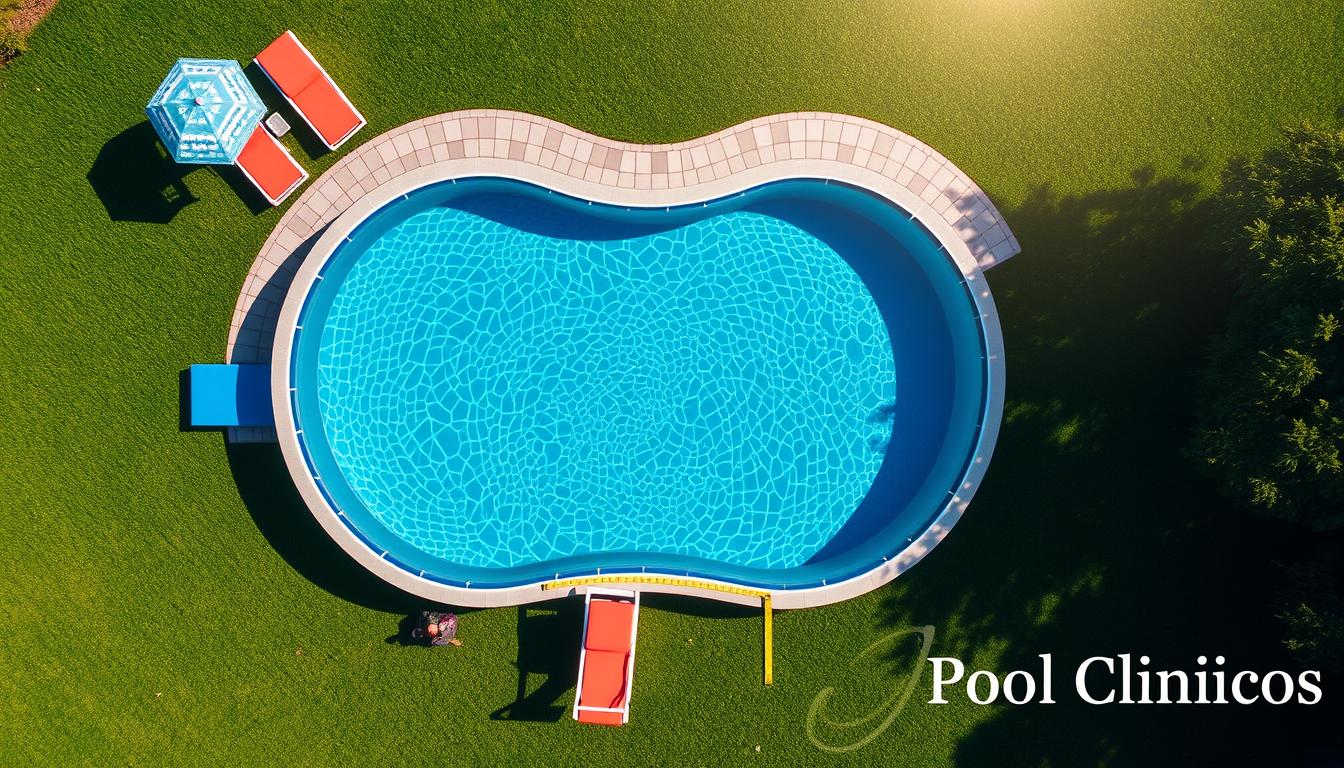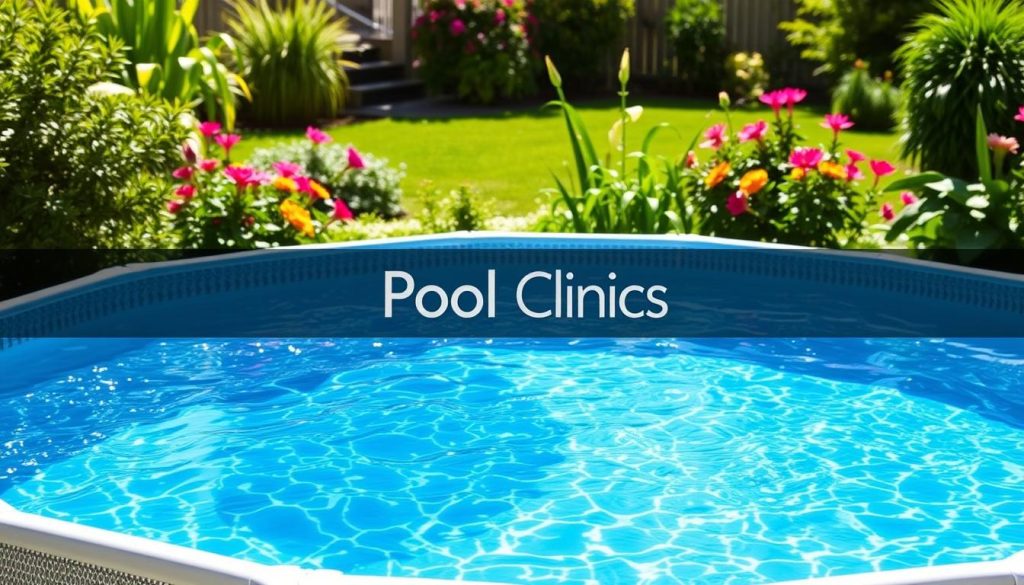
Knowing your pool’s gallon capacity is vital for proper maintenance. It helps you add the right amount of chemicals and run equipment efficiently. Understanding pool volume also impacts your wallet and the environment.
Pool volume is key to keeping your water clear and fun-filled. This guide explores factors affecting pool capacity and provides a handy volume calculator. We’ll focus on the gallon capacity of a 24 foot round pool.
Let’s dive in and discover how much water you’re swimming in!
Key Takeaways
- Knowing your pool’s gallon capacity is crucial for maintaining water quality and equipment efficiency.
- Pool volume is affected by factors such as shape, depth, and water level.
- A pool volume calculator can help determine the precise gallon capacity of your pool.
- A 24 foot round pool typically holds between 10,000 to 15,000 gallons, depending on its depth.
- Understanding your pool’s volume helps you save money and minimize environmental impact.
Understanding Pool Volume
Knowing your above ground pool’s volume is crucial. It helps maintain water chemistry, ensure efficient heating, and control ownership costs. This knowledge is key for proper pool management.

Importance of Knowing Your Pool’s Gallon Capacity
Accurate pool volume measurement is vital for several reasons. It allows for proper chemical dosing and safe, balanced water. It also helps calculate energy needed for heating, optimizing your system.
Understanding volume is essential for sizing your filtration system. This ensures proper water circulation and clarity in your pool.
Factors Affecting Pool Volume
Several factors influence your pool’s water volume. These include the pool’s shape, size, and wall height.
- Pool shape: The shape affects volume, whether round, oval, rectangular, or custom.
- Pool size: Length, width, and depth directly impact the number of gallons.
- Wall height: This affects the overall depth and water volume.
Consider these examples to see how factors impact volume:
| Pool Shape and Size | Wall Height | Water Volume (Gallons) |
|---|---|---|
| 15′ Round | 52″ | 5,724 |
| 15′ Round | 54″ | 5,948 |
| 24′ Round | 52″ | 14,652 |
| 24′ Round | 54″ | 15,227 |
Small changes in pool size or wall height significantly impact total water volume. Accurate calculation of your pool’s capacity is crucial. This helps implement effective maintenance and ensures a safe, enjoyable swimming experience.
How Many Gallons in 24 Foot Round Pool
Knowing your pool’s water volume is key for proper maintenance. It helps determine chemical amounts, filter system selection, and water replacement costs. Let’s explore how to calculate the gallons in a 24-foot round pool.
Calculating Gallons in a 24 Foot Round Pool
Use this formula to find your pool’s volume: Volume = π x radius² x depth x 7.48. Here’s what each part means:
- π (pi) is a mathematical constant approximately equal to 3.14159
- Radius is half the diameter of the pool (in this case, 12 feet)
- Depth is the average depth of the pool in feet
- 7.48 is a constant used to convert cubic feet to gallons
Let’s look at an example. For a 24-foot round pool with a 4-foot average depth:
Volume = 3.14159 x 12² x 4 x 7.48 = 13,593 gallons (rounded to the nearest whole number)
Pool depth can vary, affecting total water volume. A 24-foot round pool with 52-inch walls holds about 14,652 gallons. The same pool with 54-inch walls holds roughly 15,227 gallons.
24 Foot Round Pool Gallon Chart
Here’s a quick reference chart for common round pool sizes:
| Pool Size | Average Depth | Gallons |
|---|---|---|
| 24′ Round | 48″ | 13,593 |
| 24′ Round | 52″ | 14,652 |
| 24′ Round | 54″ | 15,227 |
| 30′ Round | 48″ | 21,240 |
| 33′ Round | 52″ | 28,912 |
Knowing your pool’s capacity helps you choose the right equipment. This includes selecting the proper size and type of filter, pump, and heater. For more info on pool accessories, check out our comprehensive pool accessories guide.
Conclusion
Knowing your 24-foot round pool’s volume is vital for proper maintenance. Use a pool calculator or gallon chart to determine capacity. This helps with chemical dosing and water level monitoring.
Consider local codes, septic tank location, and yard slope when installing your pool. These factors affect placement, stability, and costs. Work with reliable professionals to create a safe backyard oasis.
Regular maintenance is crucial for your pool’s longevity. Understanding volume and managing water chemistry ensures a healthy swimming environment. With the right knowledge, your pool will provide endless summer fun.







